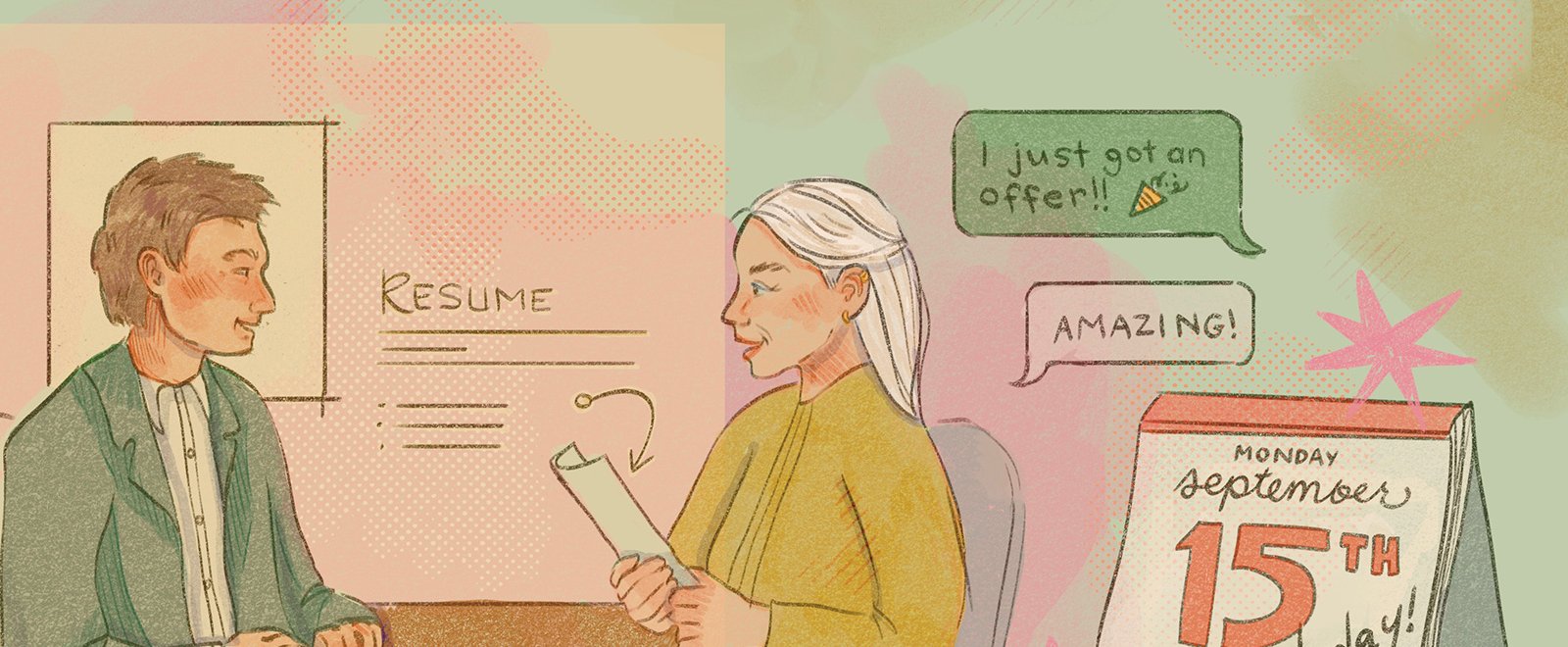
First Job to Dream Job
Recent UW grads take unexpected paths to fulfilling careers.
The transition from college to career is rarely straightforward. The final moments of a UW–Madison education can be overshadowed by the all-too-common question: “What are you doing after graduation?” Whether you left campus with a plan or a sense of uncertainty, first jobs can be stepping stones to something greater — sometimes in surprising ways.
I graduated during the COVID-19 pandemic in 2020 and remember the added layer of stress that came with searching for my first job. Friends left and right were pivoting to remote roles, moving across the country, finding new ways to use the lessons they learned in the classroom. As a journalism major, I knew there was a job out there for me somewhere, but questions weighed on me as I began my search: Would I find something fulfilling? Where would it take me next?
My path was typical for a young reporter. Eager to make my mark, I started off as an intern at one of Wisconsin’s largest newspapers and then transitioned into a full-time reporting gig at a smaller paper in central Wisconsin. I cried when I didn’t get a job I’d been hoping for at a bigger publication. I learned, as many grads do, that it’s necessary to “work your way up.”
Despite my initial concerns, my first job was formative. It was also nerve-wracking and intimidating. I had to fight off imposter syndrome at every turn while learning new skills and getting to know new colleagues. Everyone offered advice: Be yourself. Build your network. Find a mentor. Be patient. Take risks. Solve problems on your own. Ask for help.
At the time, it all seemed impossible. But eventually the advice paid off, and my journalism career kicked into gear.
The job market for recent grads is ever-changing. As always, some fields are booming and others lagging. But Badgers can find success anywhere. The following stories highlight UW alumni who found themselves on unexpected paths, overcame early struggles, or discovered a passion they had never anticipated — all traced back to that pivotal first job.
“What If I Just Went All In on This?”
Katie Roberson ’19 knows the sting of postgrad rejection all too well.
“I applied to so many jobs in advertising and communications,” she recalls. “I got some interviews, but nothing panned out. It was disheartening.”
After graduating with a degree in communication arts and a certificate in digital studies, she juggled multiple jobs at Target and a Madison event-planning company, on top of an endless stream of applications. But one thing remained constant: photography.
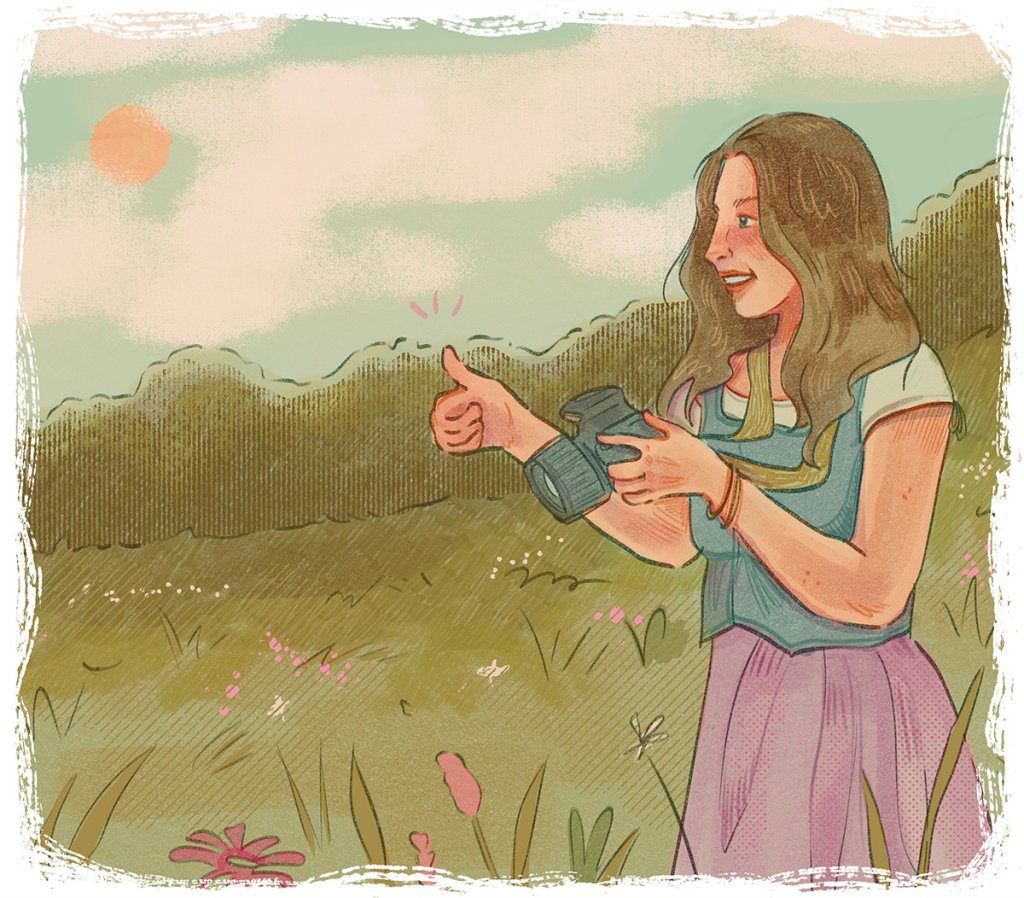
After a disheartening entry into the job market, Katie Roberson took a risk and started a photography business.
“I had been taking pictures since freshman year of college — mostly for fun and for a little extra money,” Roberson says. “One day, I realized I was spending more time editing photos than applying for jobs. And I thought, ‘What if I just went all in on this?’ ”
The idea was both thrilling and terrifying. A creative passion wasn’t the same as a stable career, and she wrestled with doubts about whether she could turn it into something sustainable. But after months of contemplation, she decided to take the leap. In 2020, she officially launched Katie Ann Photography LLC.
Then the world shut down with COVID-19.
“All of my bookings got canceled overnight,” she says. “It felt like the worst possible time to start a business.”
But rather than give up, Roberson pivoted. She leaned into learning, honing her craft, refining her marketing strategy, and connecting with potential clients online. She offered discounted sessions to build her portfolio and experimented with different types of photography.
Slowly, word spread.
“I remember the moment things started to shift,” Roberson says. “I opened bookings for summer senior photo sessions in late spring and suddenly had dozens of inquiries, and for the first time, I thought, ‘This might actually work.’ ”
Five years later, Roberson has built a thriving business, specializing in high school seniors, college graduates, and family portraits. What started as a side hustle has become a full-time career — one she never imagined but wouldn’t trade for anything.
“Taking that leap and believing in myself was the best decision I ever made,” she says.
Roberson says a first job doesn’t necessarily have to be traditional. “If you have a skill or passion that you love, don’t be afraid to explore making it your career. The risk might just pay off.”
“Say Yes to Conversations”
Adaptability is a hallmark of being a Badger.
For Aaron Her ’24, there was no clear roadmap for breaking into the business world. With a degree in consumer behavior, he landed an internship at the department store chain Kohl’s, working in marketing and analytics at the corporate headquarters.
Having grown up in Milwaukee in a low-income household, Her didn’t have industry connections or a clear-cut path to success.
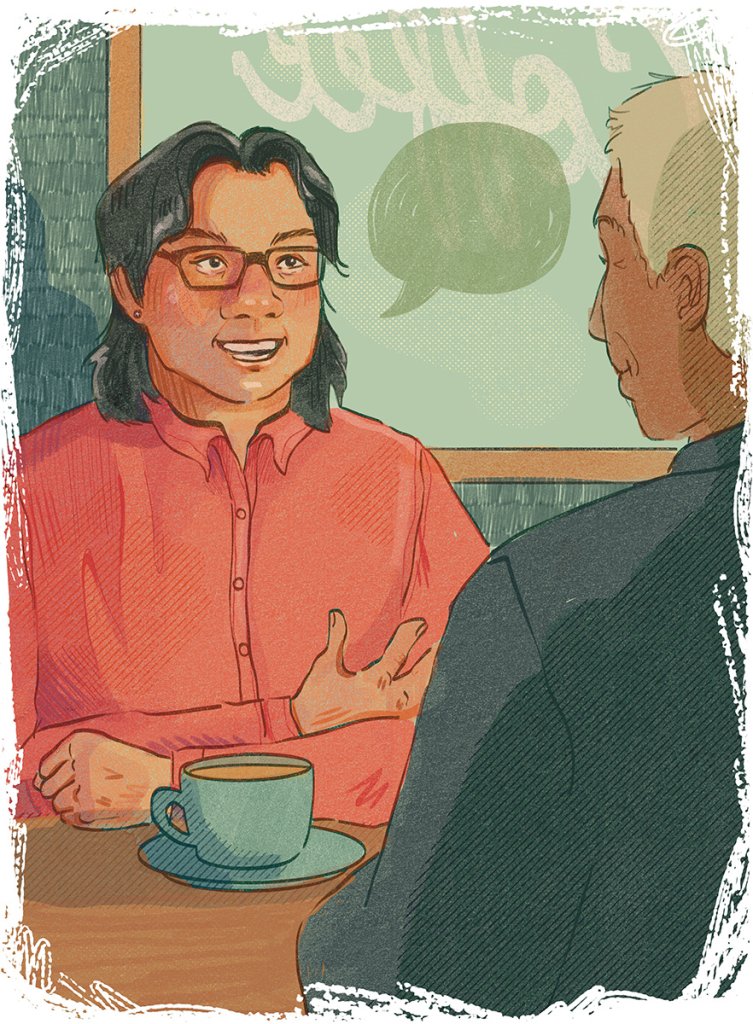
A decision to step out of his comfort zone and arrange a networking meeting changed Aaron Her’s life.
“I’ve seen how valuable networking is. While many of my peers landed great internships or mentors through family connections, coming from a family of immigrants meant not having that,” he says. “I’ve had to work harder to get an opportunity and to prove myself.”
But Her’s willingness to step outside his comfort zone opened unexpected doors. While he was still figuring out his career path at Kohl’s, a conversation at a networking event changed everything. He met an executive from Dell Technologies who introduced a new perspective on sales.
“I always thought sales was just cold-calling people and pushing them to buy stuff,” Her says. “But the way he described it, as problem-solving, as relationship-building, made me see it in a totally different light.”
Her reached out to the executive on LinkedIn and asked if he’d be open to grabbing coffee.
“That conversation ended up changing my life,” he says.
Her began researching sales roles at Dell and applying to sales training programs. His efforts paid off with a position as an inside sales account executive at Dell in Austin, Texas.
“I remember getting the job offer and feeling this mix of excitement and fear,” he recalls. “I had never done sales before. But I reminded myself that the skills I had — communication, adaptability, persistence — would carry me through.”
Now Her is responsible for generating more than $8 million in revenue and managing a diverse portfolio of clients. He’s thriving in a field he never initially considered.
“I had to create my own opportunities,” he says. “Even when the path isn’t clear, believing in yourself and seeking out connections can lead to incredible possibilities.”
His advice to new grads?
“Say yes to conversations. You never know which one will change your life.”
“Life’s What You Make It”
Tamia Fowlkes ’22 always thought her path would take her far from home. After earning her journalism and political science degrees from UW–Madison and completing a master’s in journalism at Columbia University, the Milwaukee native was set on chasing big stories outside of Wisconsin. But when an opportunity came up in Milwaukee at the same newspaper where she had interned as an undergraduate, it felt like the perfect choice.
Fowlkes is a public investigator at the Milwaukee Journal Sentinel, covering labor, politics, and culture — exactly the kind of journalism she dreamed of doing growing up.
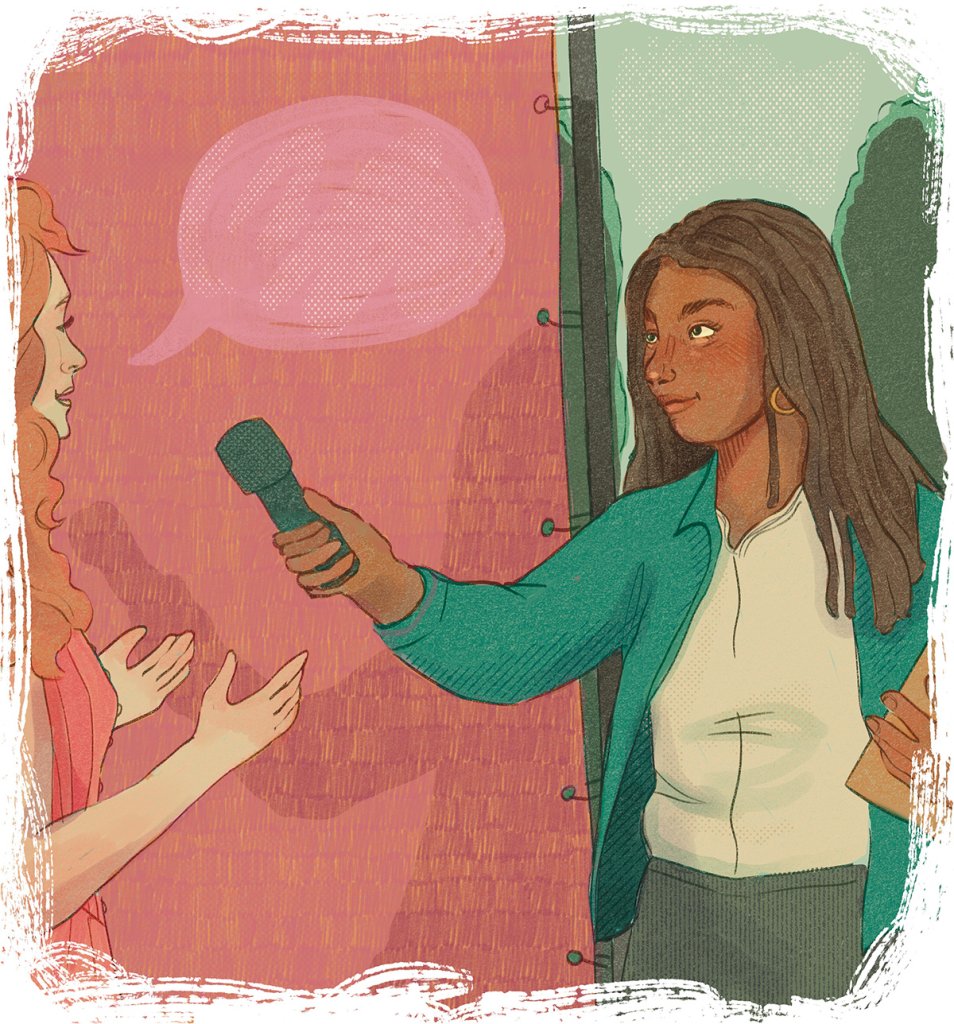
Tamia Fowlkes followed her gut and landed her ideal journalism job.
“When I was offered the job, I had a call with my mom, and she said, ‘I remember when you said in your eighth-grade graduation speech that you wanted to report on your community and make a positive impact,’ ” Fowlkes recalls.
Fowlkes has written about national political conventions and interviewed the pop star Chappell Roan, but she’s most passionate about helping everyday readers — those who reach out to her with tips, concerns, and questions.
Like many fields, journalism can be tough to break into, but Fowlkes advises new graduates to pursue their passions and not wait for permission.
“I think back to that Hannah Montana song: ‘Life’s what you make it, so let’s make it rock,’ ” she says with a laugh. “My college career and the time after has been defined by following my gut and knowing exactly what I want to get out of something, and then trying my best to actively pursue it. Even if it doesn’t always work out, at least I tried.
“People can certainly tell you no,” Fowlkes adds, “but the best thing you can do is just put yourself out there and keep trying.”
“You Don’t Have to Have It All Figured Out”
Sometimes, UW grads strike gold from the get-go. That was the case for Caitlin Mensing ’14, who graduated with degrees in community and nonprofit leadership and sociology. Initially drawn to public health and education, she explored opportunities with AmeriCorps and other nonprofits, uncertain where she’d land. Then a friend introduced her to Project Success, a Minneapolis-based youth development nonprofit.
An email introduction led to a Skype call, which led to an interview. By the Tuesday after her college graduation, she was stepping into her first full-time role as an administrative manager at Project Success.
“I remember feeling this mix of excitement and nervousness,” Mensing says. “I was grateful to have a job lined up, but I didn’t know yet if I would grow into it.”
Eleven years later, Mensing is the director of administration for the entire organization.
“I didn’t expect to go into administration,” she says. “I thought I’d be working more directly with programming. But taking on an operational role gave me insight into how nonprofits function at every level. I learned how funding works, how to support a board, and how to manage an organization’s day-to-day needs.”
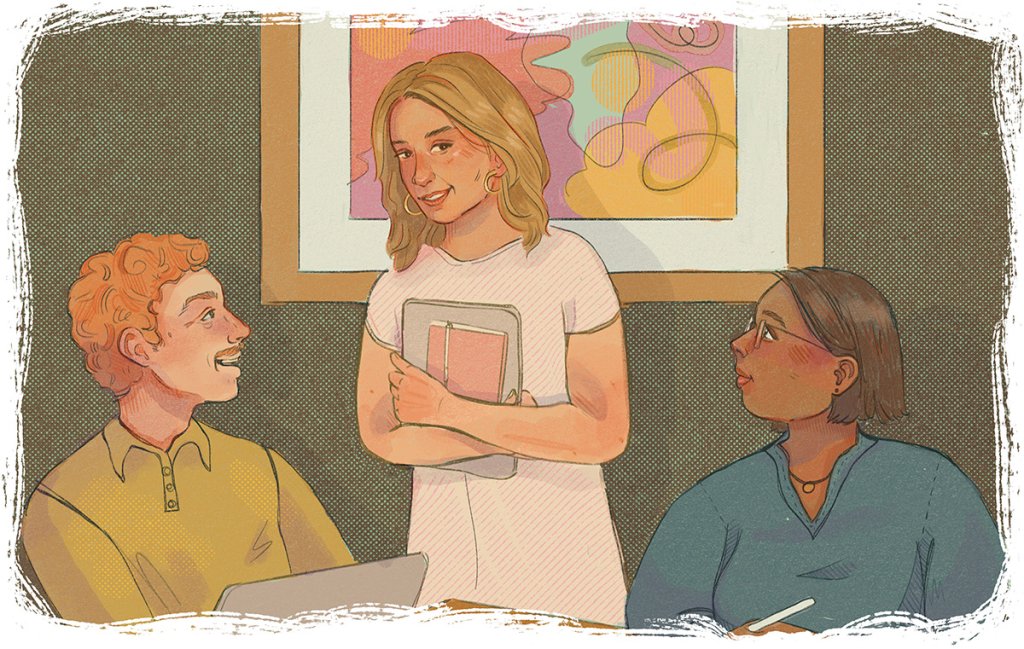
Caitlin Mensing embraced the learning curve that came with her job.
Mensing discovered parallels with her late mother, who had spent more than two decades in education administration.
“I remember looking around one day and realizing how similar my role was to what my mom did,” she says. “It was an unexpected full-circle moment, and it made me feel like I was exactly where I was supposed to be.”
Mensing attributes much of her professional growth to being open-minded and embracing the learning curve that came with the job.
“You don’t have to have it all figured out,” she advises new grads. “Find an organization whose mission you believe in and a role where you can gain a variety of skills. Your first job doesn’t have to be your dream job, but it can set the foundation for whatever comes next.”
“On the Cutting Edge of Innovation”
After earning a doctorate in chemistry, Tyler Ogorek PhD’24 didn’t head to a research lab or pharmaceutical company like many of his peers. Instead, he made an unexpected pivot into business strategy.
Now, he’s a consultant at Bain & Company in Chicago, where he works with clients across industries to tackle complex challenges. To Ogorek, his path is a reminder that career boundaries are often more flexible than they seem.
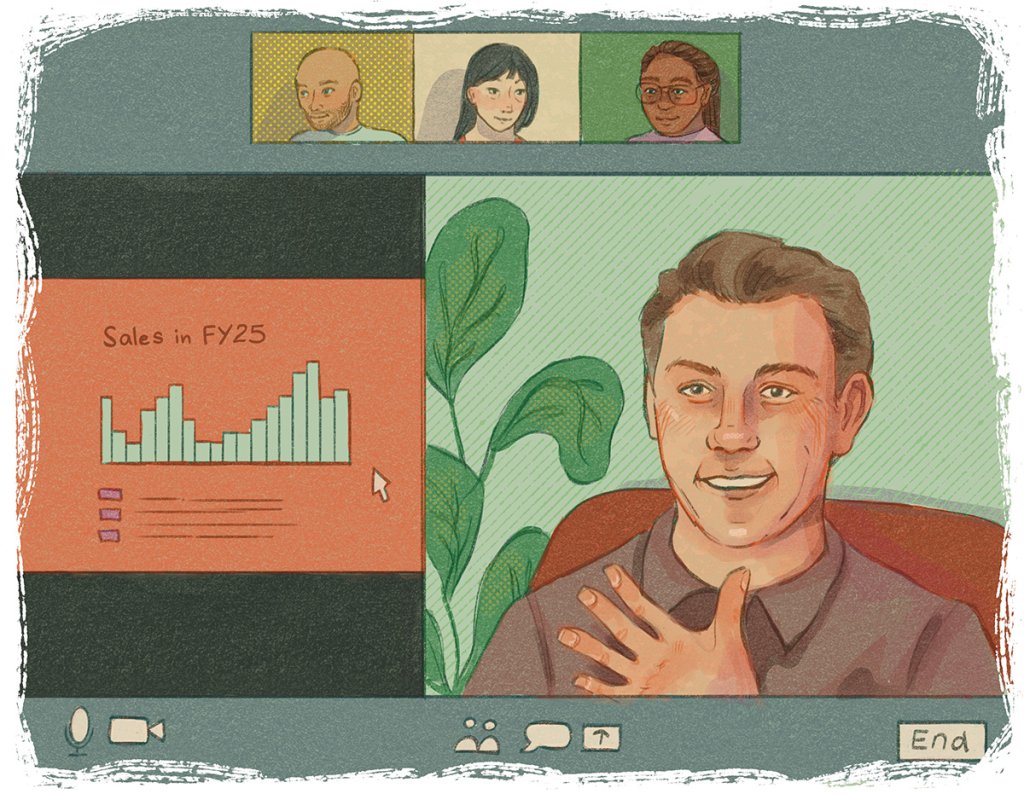
Tyler Ogorek benefited from an unexpected career pivot.
“Not many PhDs know that consulting is a field that’s open to them,” he says. “It’s an extremely rewarding career path that should be top-of-mind for PhDs looking to enter the workforce in an area not strictly aligned with their educational background.”
The leap into consulting wasn’t random. It was strategic, informed by careful preparation. The role constantly pushes him to think critically and creatively.
The real draw for Ogorek is the intellectual thrill. “I work with clients across all strategy topics,” he says. “You get a chance to solve the toughest problems businesses face, in topics on the cutting edge of innovation.”
Whether you’re working in a chemistry lab or a corporate boardroom, Ogorek is proof that the most rewarding career pivots are often the ones that blend curiosity with courage.
Launching a Career at UW–Madison
The UW offers robust career services through dedicated offices within each school and college, providing tailored support to students as they prepare for life after graduation. Services include one-on-one advising, résumé and interview workshops, career fairs, job and internship postings, and on-campus recruiting. Students can access these resources through a career adviser or through Handshake, a free online platform for finding jobs and internships. See careers.wisc.edu.